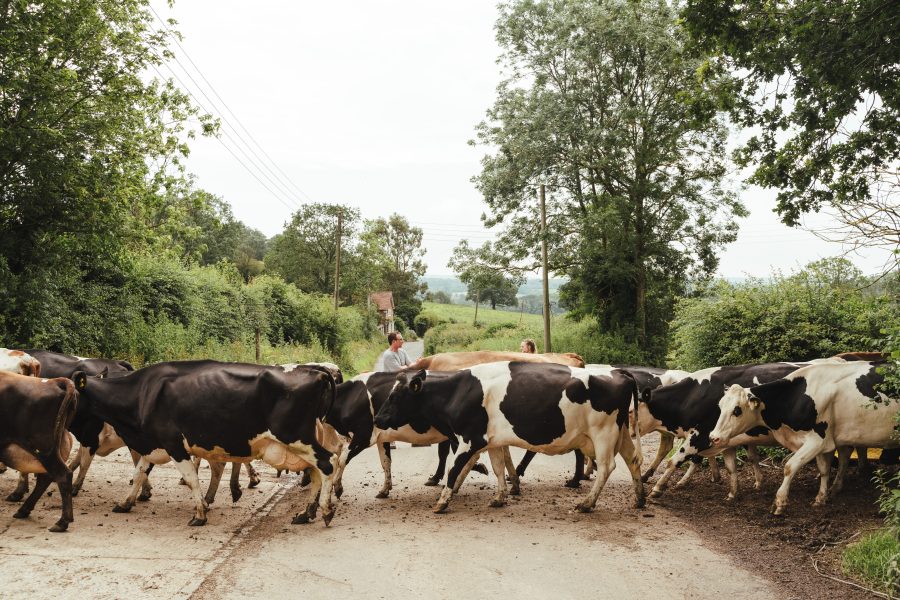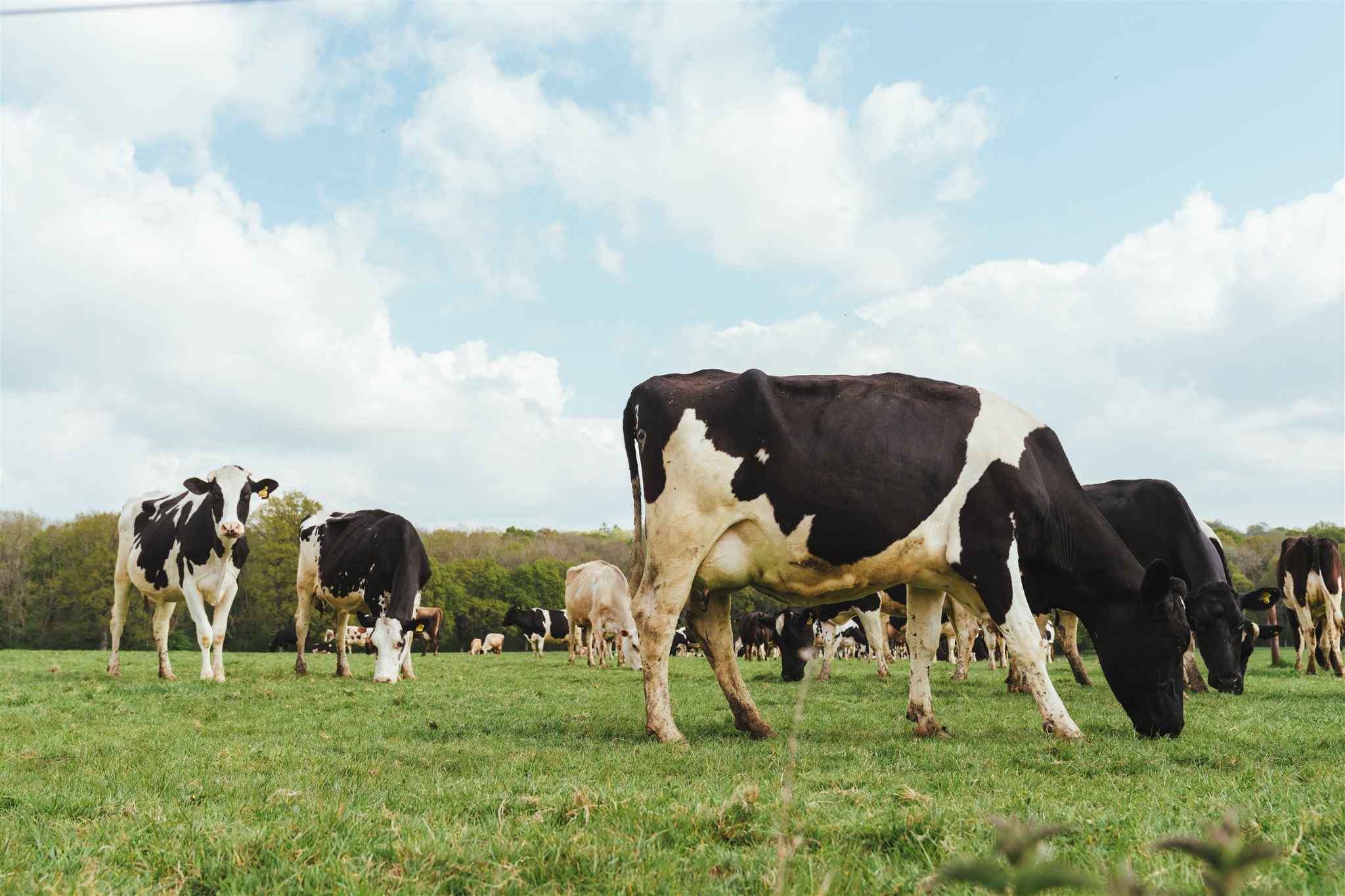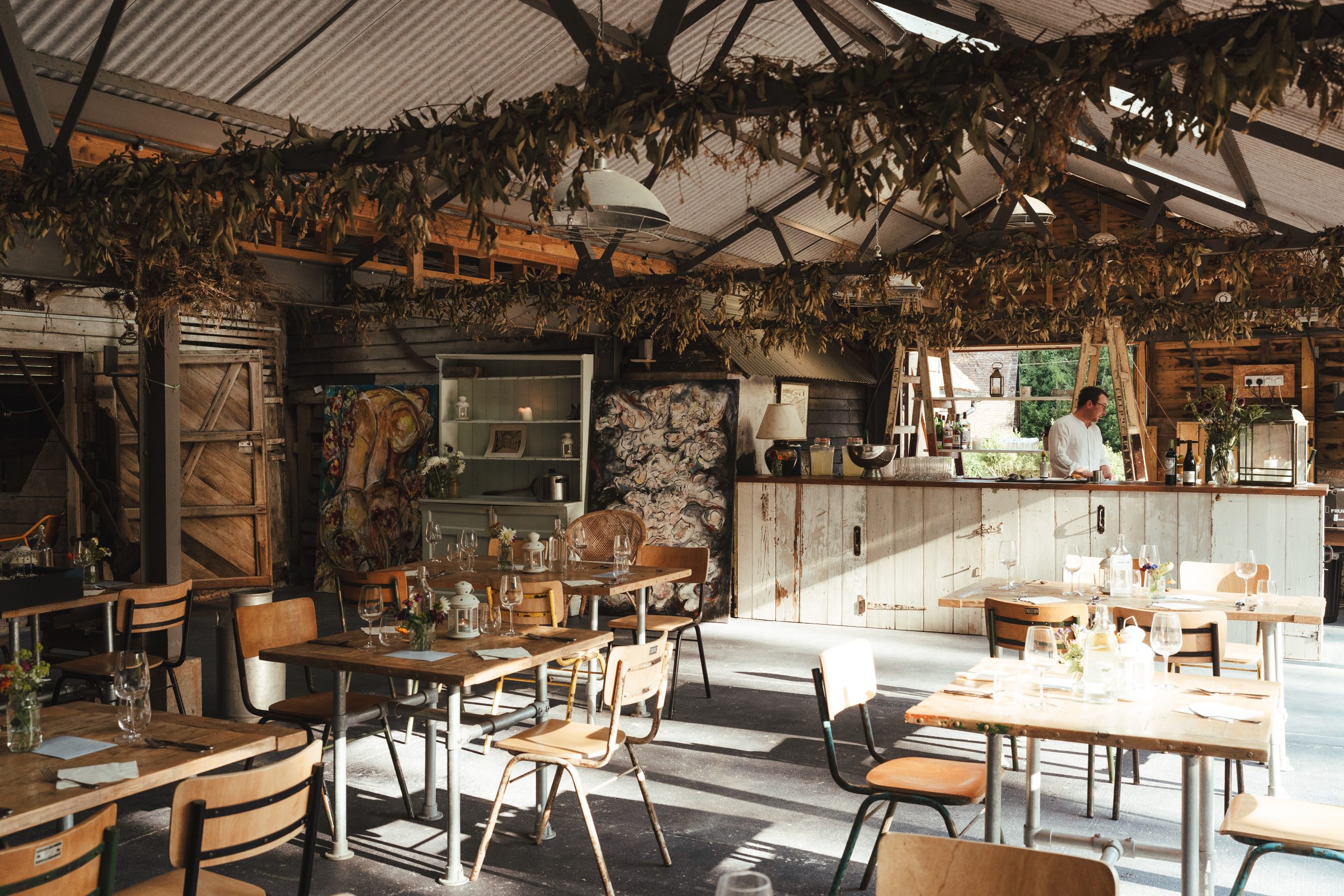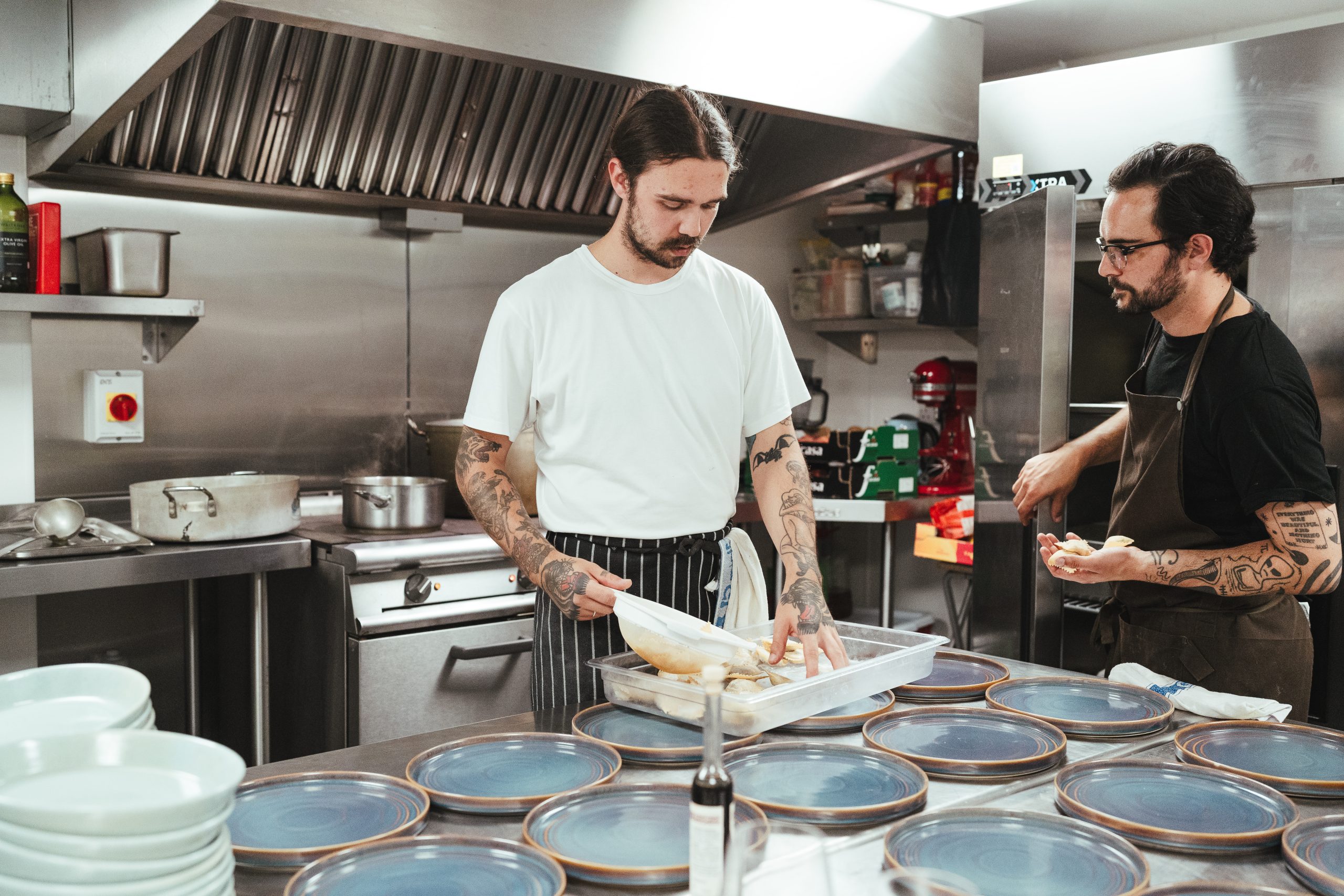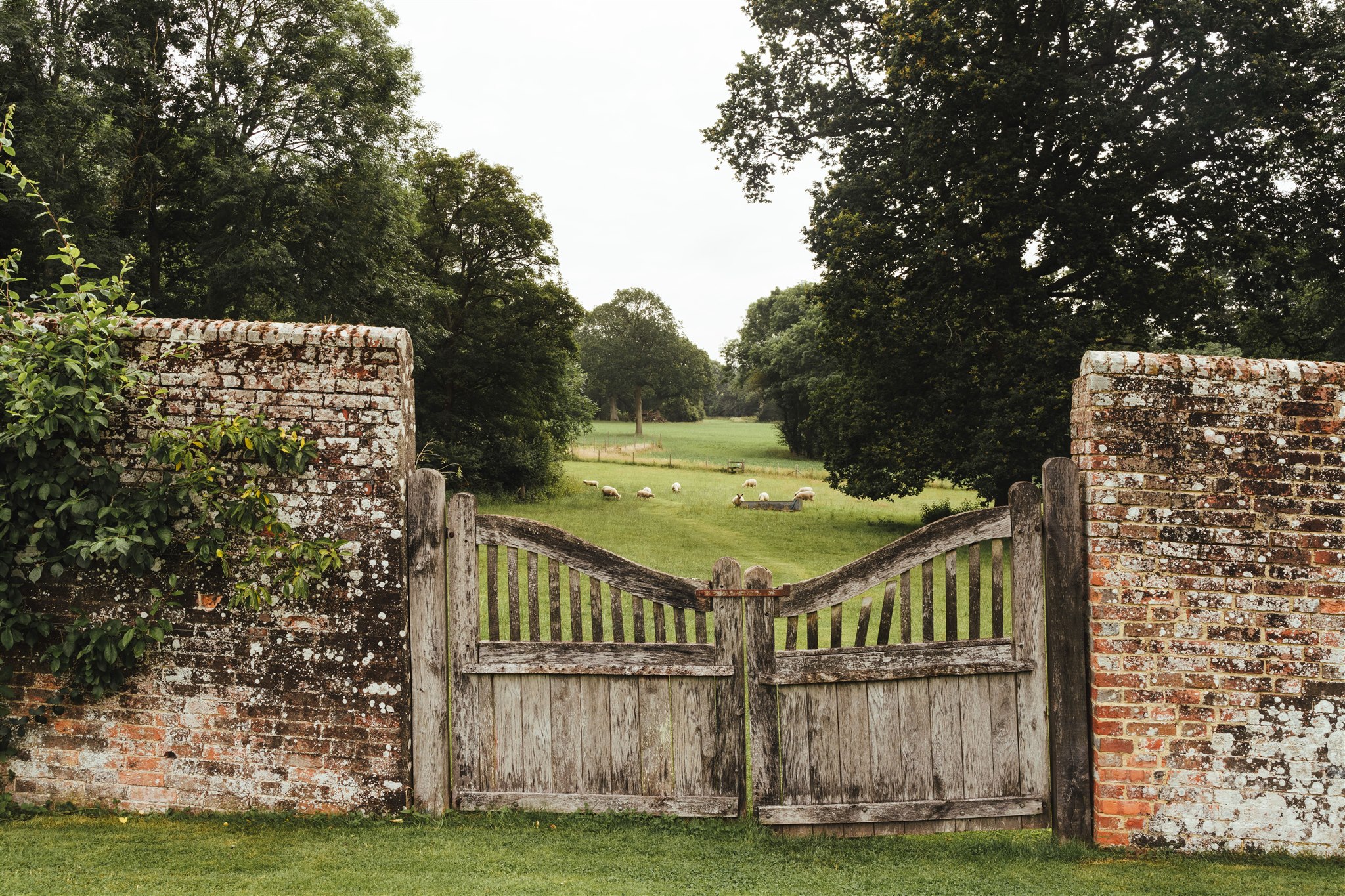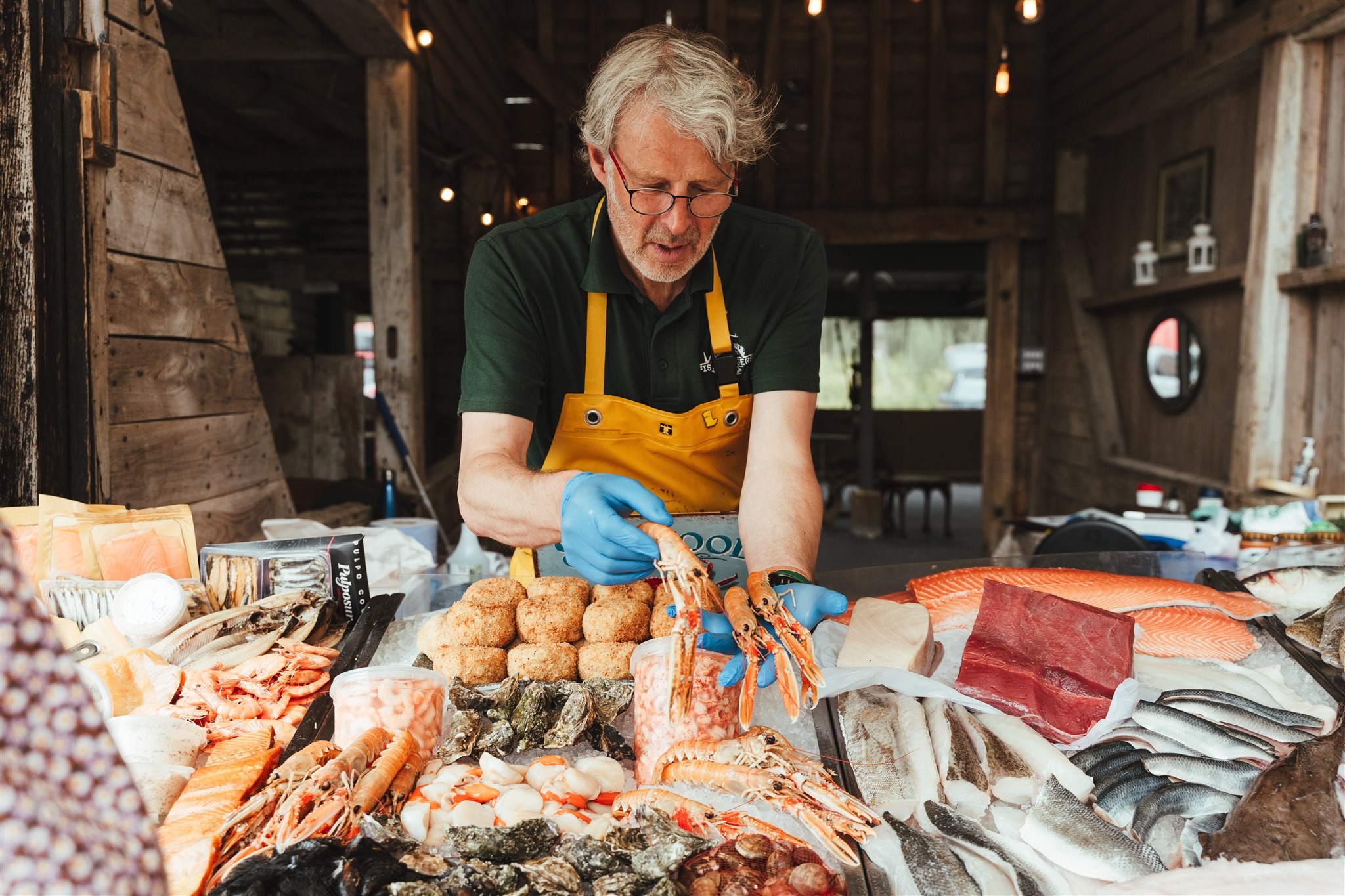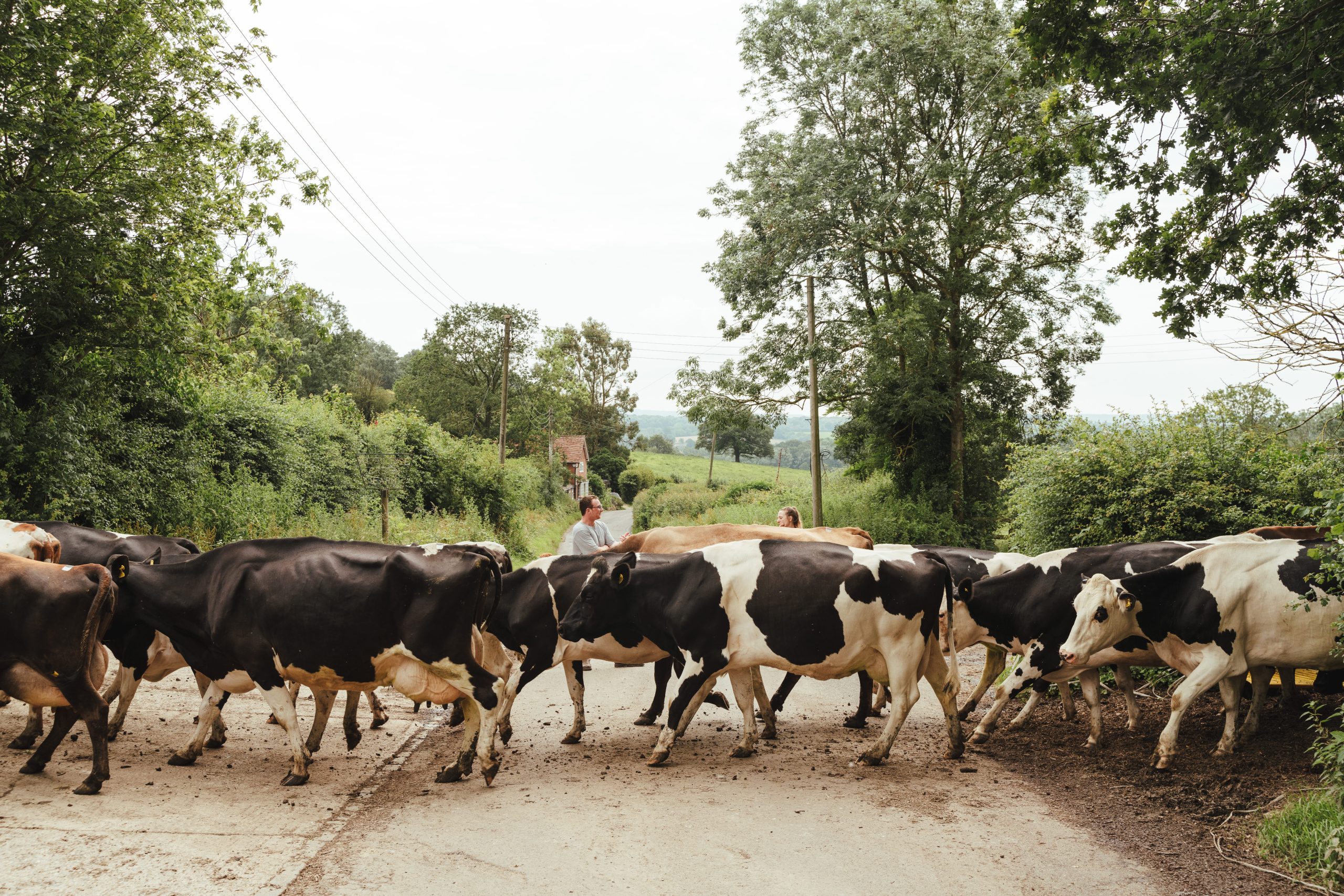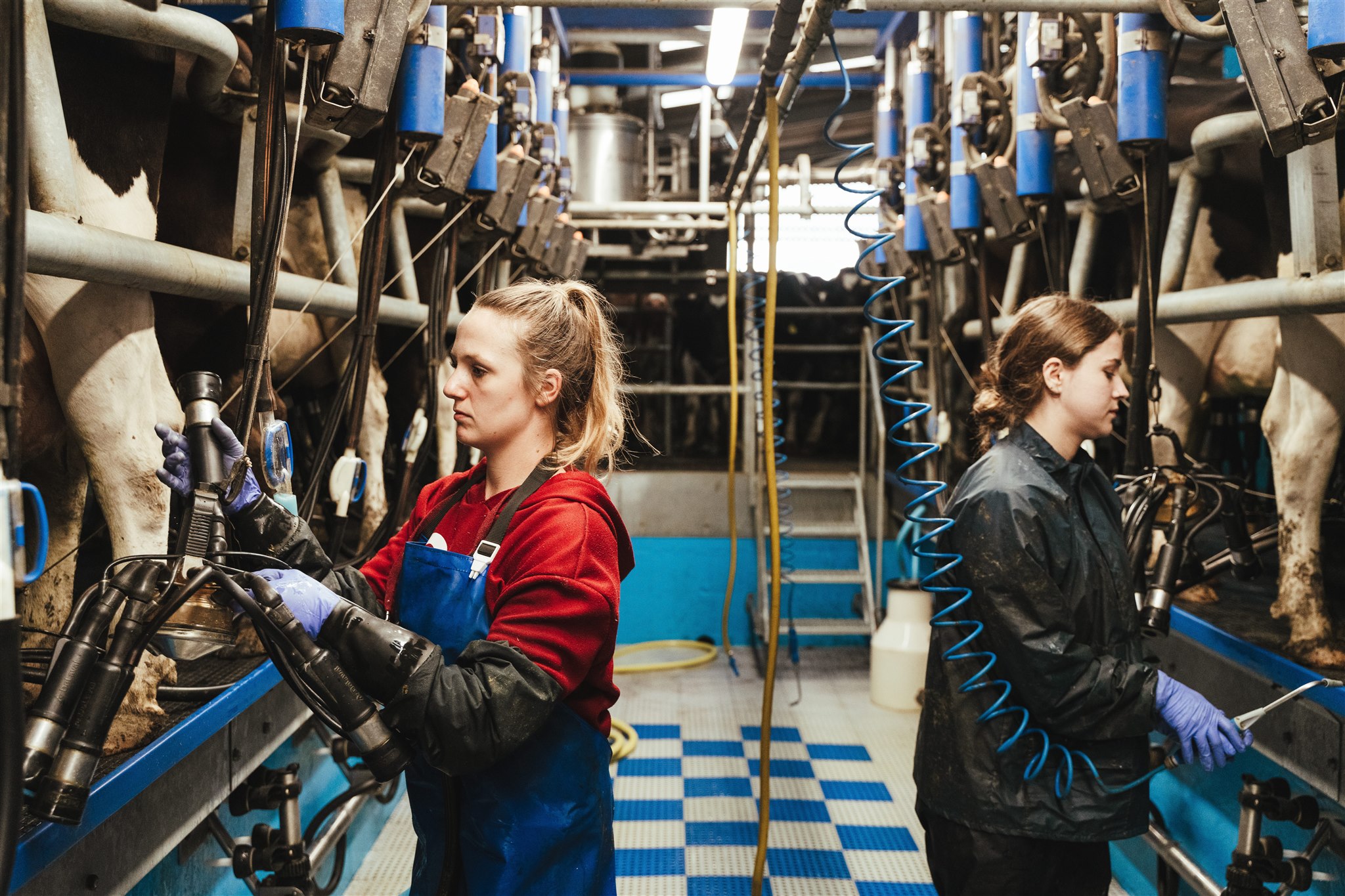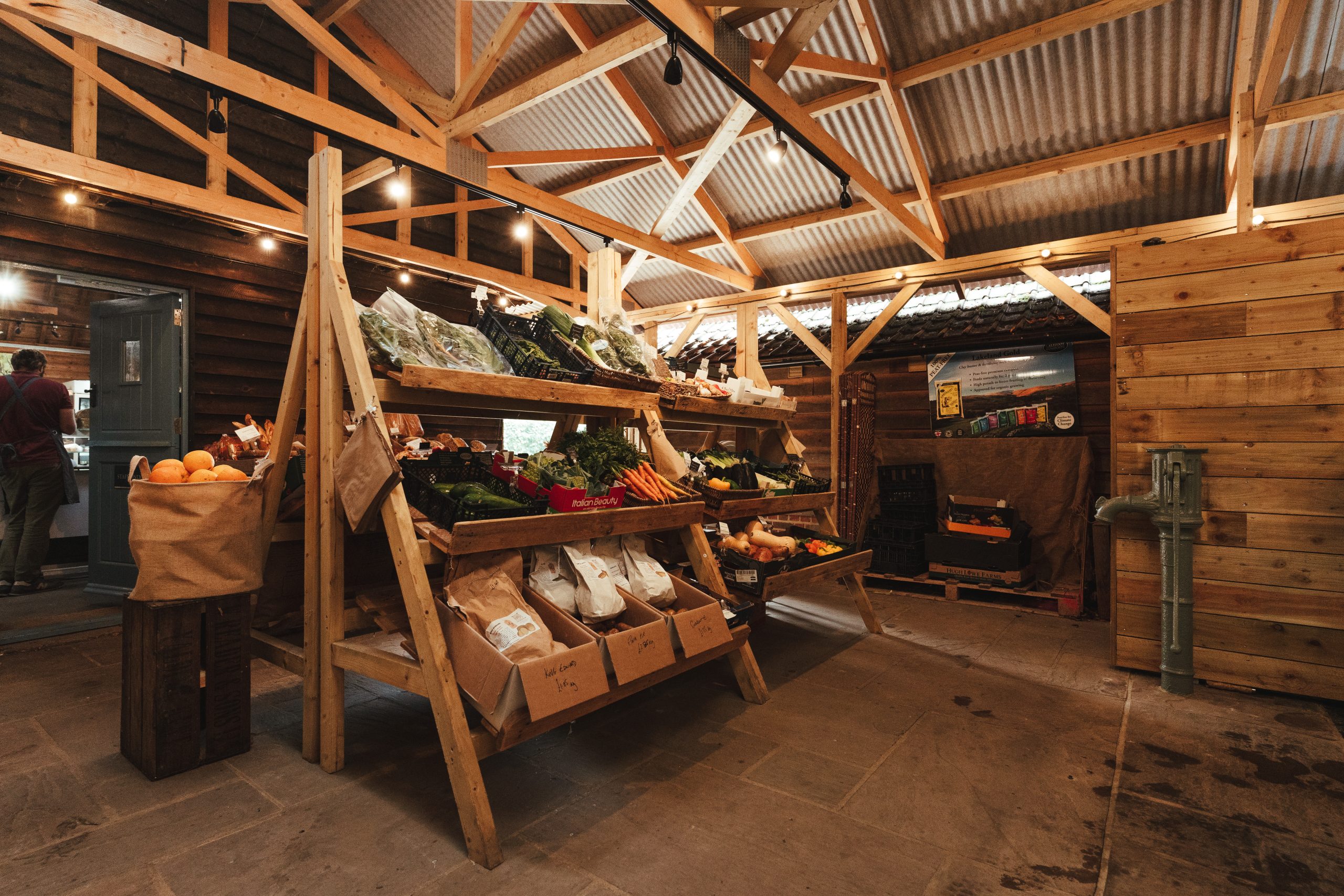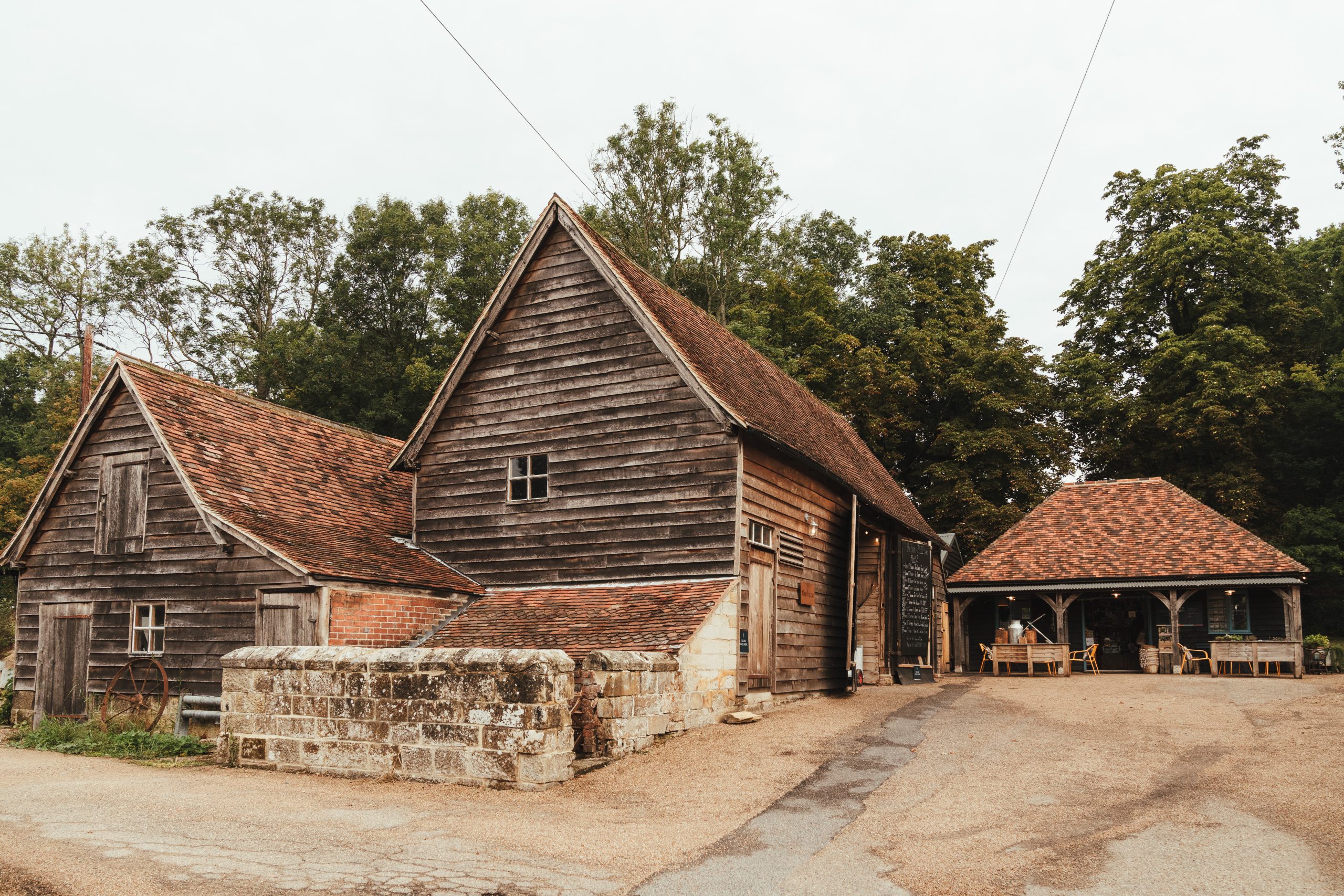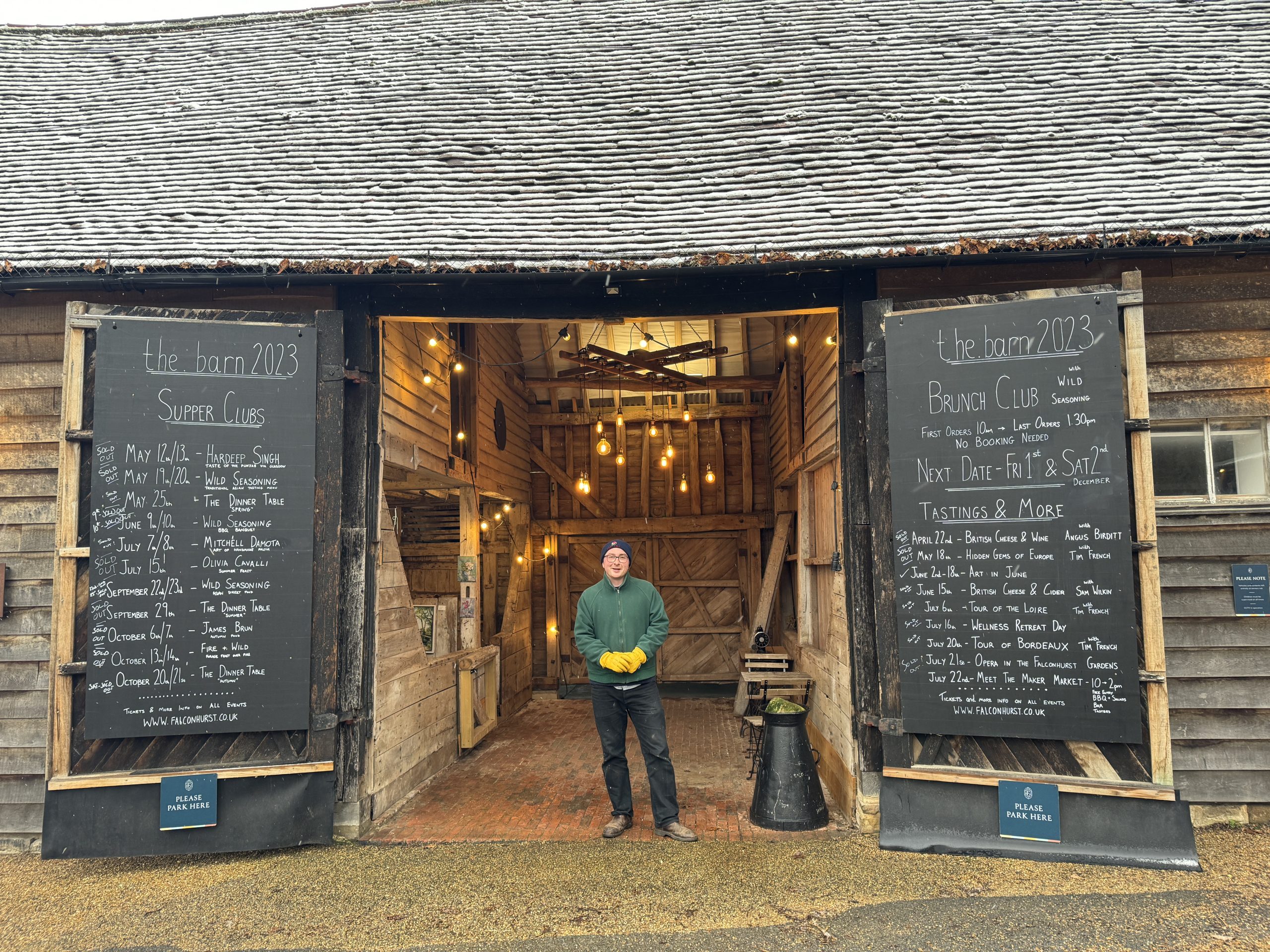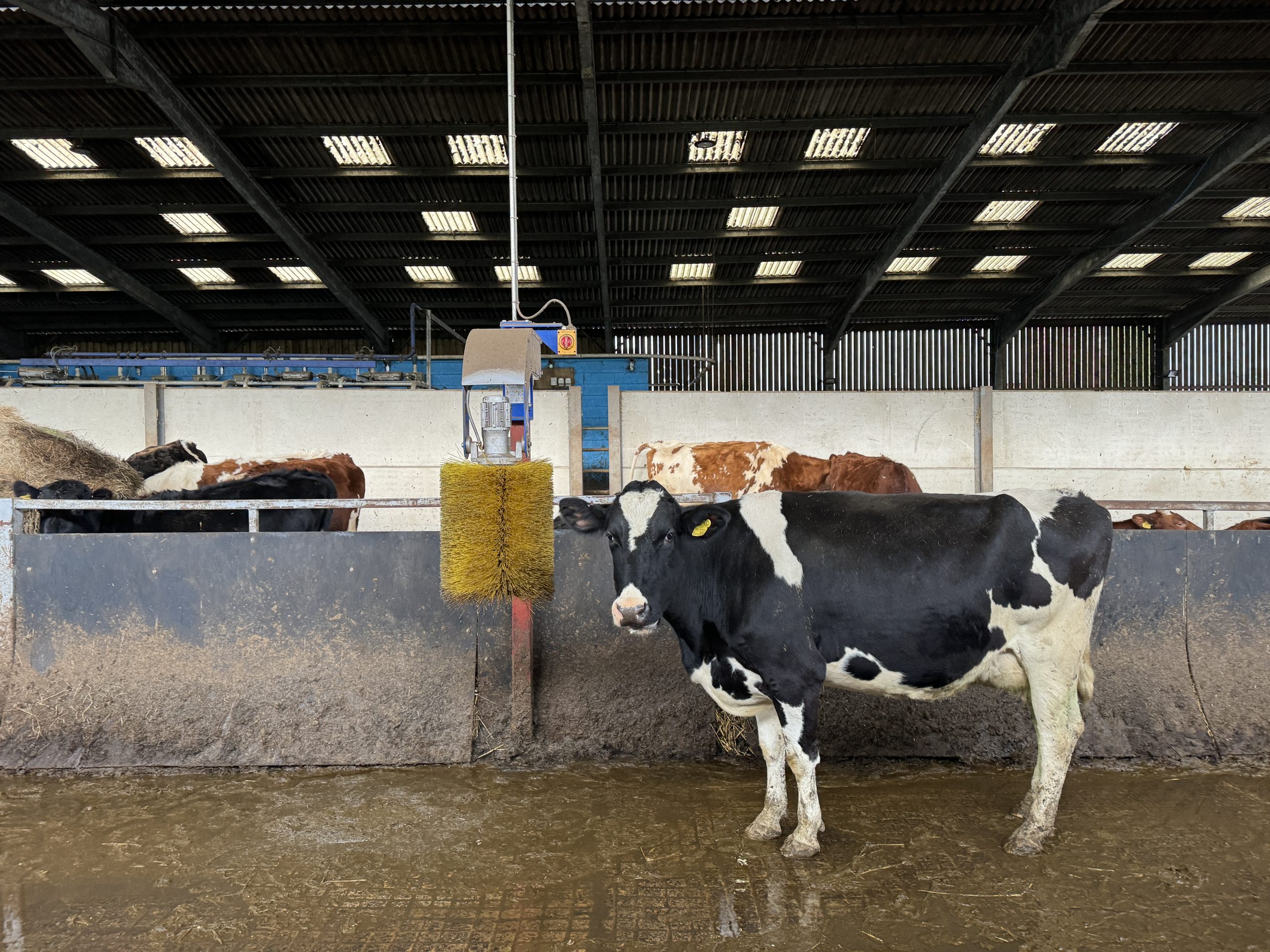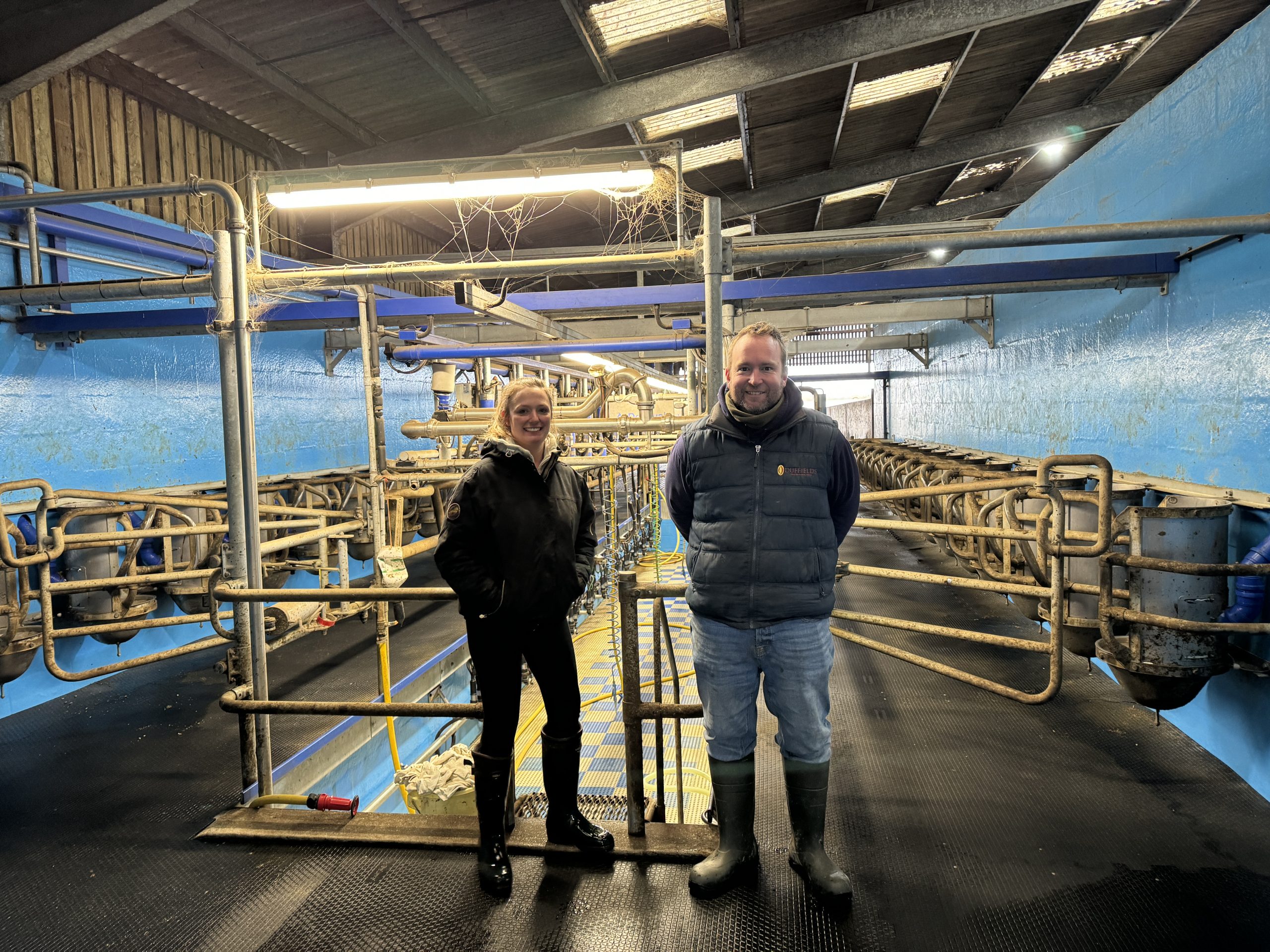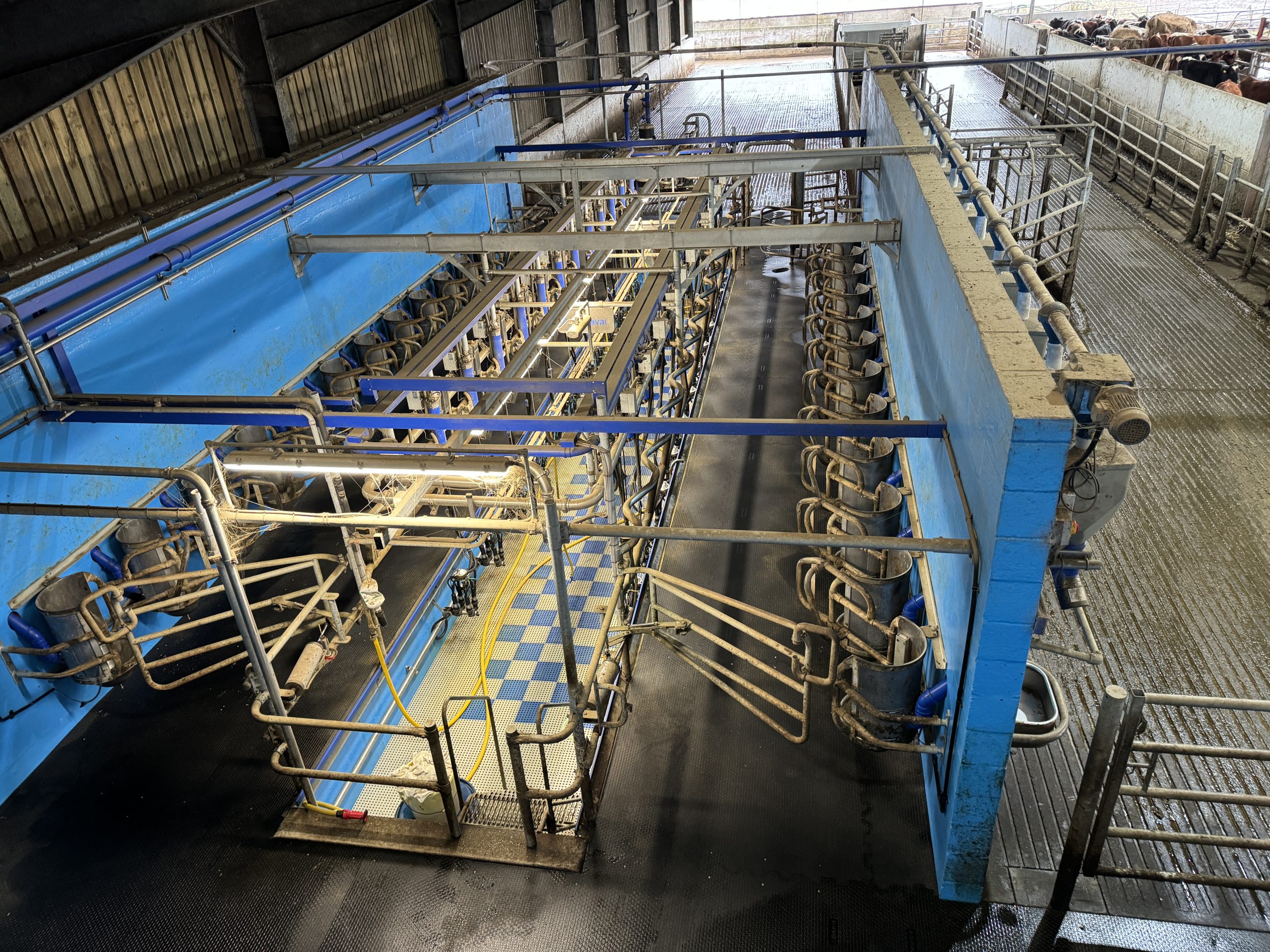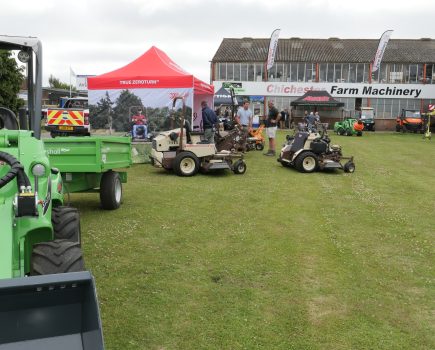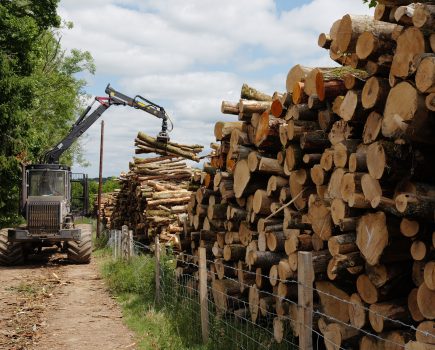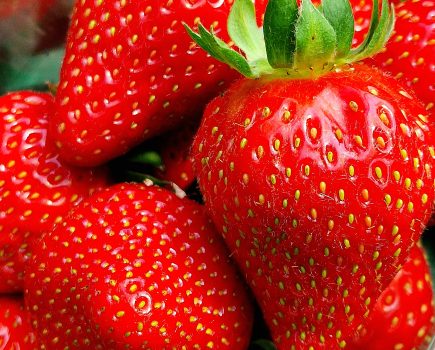This month Nigel Akehurst visits the Falconhurst Estate in Edenbridge, Kent, to meet the Talbot family and their contract dairy farming partners, RC & JL Pickering & Sons, to find out how fresh ideas and regenerative agriculture are breathing new life into a traditional family run business.
Falconhurst Estate is in the High Weald of Kent, an area of outstanding natural beauty (AONB) less than an hour from central London. Arriving along the Cowden Pound Road, I notice the smart signage and turn into a smart driveway with a cluster of traditional farm buildings at the top.
As I follow the drive, I pass the pretty farm shop and a lovely old barn with huge doors on my right. Further down is the main house, where I park up and am greeted by father and son Charles and George Talbot.
It’s trying to snow so we head inside for a cuppa. After a brief catch up – we had all previously met as participants of the excellent Prince’s Trust Farm Resilience Programme run by the High Weald AONB (now the High Weald National Landscapes) back in 2019 – Charles left George and I to talk shop.
To cut a long story short, George explained that his ancestor, John Chetwynd Talbot, made his fortune in London as a barrister and KC and decided to buy the land and build Falconhurst in the 1850s. The estate has remained in the family for six generations, with each generation putting its own stamp on it, he explained.
The mainstay of the income is generated through property, with 26 long-term residential rentals and a couple of holiday lets. The estate also includes 550 acres of grassland and 200 acres of woodland, which the family decided to take back in hand in 2016 after previously letting the land out.
The family now works in partnership with local dairy farmers RC & JL Pickering & Sons on a contract share farming agreement. They run 210 mainly Friesian and Jersey organic cows, with about 320 animals on the estate in total.
Keen to learn more about George’s background, I discovered that, before moving back to Falconhurst in 2019, he had spent several years working in London for various butchery and food-related businesses, including a cheesemonger and restaurant.
When he first moved back, his brother Daniel and his wife Charlie were in the process of starting a farm shop at the top of the drive. They converted an old stable building with the help of some local builders who carried out a simple renovation.
George took over Daniel’s previous role of property maintenance on the estate and spent a day a week helping on the farm. With the new farm shop scheduled to open in December 2019, his cogs were turning towards setting up a new venture. He identified an old unused farm building next to the shop as an ideal venue for events.
Through his connections in London, George knew several chefs and decided to connect the dots and host a pop-up restaurant in the space.
With Covid-19 delaying the original launch date by a couple of months, his first event took place in July 2020 with Freddie Southwell, who runs local catering company Wild Seasoning.
They sold 40 tickets, and due to pandemic restrictions guests were seated on separate trestle tables (rather than the long ones featured on Instagram). The space itself is very simple and rustic, with plastic windows that can be rolled up to provide access onto a courtyard and gardens beyond.
The event was a great success, and over the past few years the space has hosted numerous pop-up chefs, brunch clubs and private parties. Last year they ran 14 weekends of events, he said, adding that it was a formula that worked well.
George sells tickets through the events section of the website at www.falconhurst.co.uk, where there is also more information about the farm, farm shop, gardens, weddings and residential properties.
Working with chefs
Keen to understand more about the mechanics of working with chefs in practice, I asked George to explain the business model.
He typically works on a 70:30 basis, with 70% of the revenue going to the chef, who is responsible for buying the ingredients and ensuring they have enough chefs to prepare all the food.
George and another Falconhurst staff member make cocktails and help with serving. He typically includes a pot wash and accommodation on the estate for them too.
“The events are good fun and can be profitable,” he said, but ultimately George sees them more as brand-building exercises.
Most of the events are ticketed at around £55 to £80 per person and include three to seven courses and a customary garden cocktail on arrival.
Estate tour
Heading outside, George showed me around the extensive gardens, including a beautiful old walled garden. He explained that his mother Nicola was a keen gardener and advocate of Charles Dowding’s No Dig Method. In the summer the grass is left to grow long, and a lot of the planting and style is inspired by Great Dixter, he added.
We walk up the drive to visit the farm shop and meet Daniel and Charlie. After a delicious coffee, a chat about Pevensey Blue cheese (which they sell from their Deli) and a tour of their commercial kitchen, where they make all their cakes and pastries, we pop next door to check out the big barn space.
On the barn doors are two huge blackboards with the 2023 supper dates on one and brunch dates on the other. It’s an impressive lineup featuring some well-known chefs and food artisans.
George explained he is scaling back the number of evening events this year and instead introducing a number of food truck and bar days, which are less operationally taxing and thus allow him more time on other responsibilities across the estate.
In the medium to long term, he would like to turn the space into a more permanent café, but added that it would be a sizeable capital outlay to make the building suitable for year-round use.
Organic Dairy Farm
Moving on, we jump in George’s four-by-four and take a quick drive to the main cluster of modern farm buildings in the nearby village of Markbeech. Parking in the farmyard, we are greeted by Greg Pickering and his herdswoman Lucy Taylor.
They show me around the impressive cluster of barns that house all their 210 dairy cows and the 24 by 24 herringbone parlour installed in 2020. The estate also invested in a new straw shed as part of a sizeable investment in the farm.
Greg explained that he wants to push to the next level and go down the regen route, admitting the profitability of organic dairying hasn’t been very good lately due to lower milk prices.
Being organic, the cows are only fed and grazed on home-grown pasture and silage. The leys are made up of various grasses, clovers and more recently herbs. He added that it meant the cows had to work hard at times of the year to eat enough.
They have tried reducing the time they keep them inside but have learned that turning them out too soon can be detrimental to their soils due to poaching. “You’re better off keeping them in a bit longer,” he cautioned.
Looking to the future, Greg seemed optimistic and is implementing a number of improvements.
They have moved to autumn block calving from their previous system of all year-round calving. Cow genetics is another area they are improving, with Greg taking a trip out to Sweden last year to look at ProCross, a proven crossbreeding programme of Montbeliarde, Holstein and Viking Red.
He has already started breeding ProCross replacement calves and showed me a pen of smart looking heifers in a calf-rearing shed next to the main barn. He hopes the new genetics will create a more robust, feed-efficient and ultimately more profitable animal for the organic low-input system.
They have also been doing more soil mapping on the estate and making better use of their slurry and manure. Greg has also started composting the farm yard manure with wood chip and turning it with the telehandler. The aim is to create a fine compost that is easy to spread and is more easily taken down by the soil.
Lastly, to improve the productivity of their grassland, they have started reseeding some of their old rye and clover pasture with herbal leys using Countryside Stewardship and Sustainable Farming Incentive funding.
Plans
Wrapping up my visit, we head back to the house and chat briefly about George’s plans for the future. He said he would like to do more to improve the biodiversity of their woodlands, an area he feels is neglected at present.
The biggest problem they face in the High Weald is the huge numbers of deer, he said. They work with local stalkers and use mainly wild venison at their supper club events, but said more needs to be done to educate the public and create more demand for the meat.
Heading home I felt inspired by my visit and will be keeping a close eye on their Instagram account (@falconhurstestate) for more details on their upcoming supper and brunch club events this year.
Farm facts
- Organic and embracing regen ideas since 2000
- Estate land taken back in hand in 2016
- 550 acres of grassland and 200 acres of woodland
- Organic dairy farm with 210 milking cows (320 animals), run with local contractor Pickering & Sons and supplying an Arla direct contract
- Moving to ProCross cow genetics to create a herd of compact, robust cows with higher fats and proteins in the milk and better health traits
- Trialing more herbal leys via Sustainable Farming Incentive and Countryside Stewardship to increase productivity of grassland
- Using soil sampling to analyse soil pH and spreading an enormous amount of lime.
- Doing more to ensure better use of farmyard manure and slurry
- Working with farm consultants Anderson to improve business efficiency
- Invested in a new 24 by 24 milking parlour in 2020 as well as a modern straw barn
- Employs 3.5 people in the shop, four in the office, two in the garden and two on the dairy farm
- Farm shop opened in 2019
- Started running supper clubs in 2020
- Hosts weddings in the garden
- Has 26 long term residential lets
- Mitchell Damota, chef, with sous chef Ben
- Stephen Busby, fishmonger at Veasey & Sons
- George Talbot and Lucy Taylor
- Lucy Taylor with a student
- George Talbot
- Lucy Taylor and Greg Pickering

